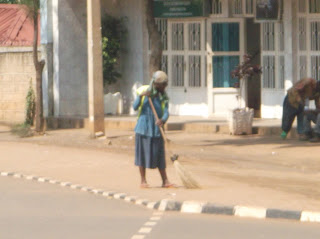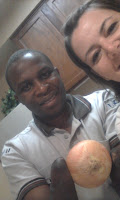 |
© 2011 Ann Voskamp / Zondervan
|
I remember the first gift.
I was in a long line of anxious, grabby women. (Your narrator included.)
They were running out of books, and I needed three. Two for
gifts, one for me. Hushed and hurried, clutching the three to my chest, I peered
around the others to count my place in line, and I caught a glimpse of her, glowing
patience amidst hurried, hoardy women.
We were justified in our hoarding. A presenter at Story, Ann Voskamp had just
spoken rich, golden grace to poor, parched souls. She teased with hints of finding
beauty and fullness in each moment, and we all had to see for ourselves.
Half-expecting fool’s gold, I approached her and held out my
three. A warm smile and exchanged words, her hundredth autograph of the
day scrolled beauty and grace on the page. Then (even as a trailing, chattering,
weight-shifting line awaited) she stopped and laid her open hand on the page. Bowed
her head. Lips moved.
Astonished, I blurted, “Did you just pray over my book? Do
you pray over all of them?”
A shy (how could she be shy?), knowing smile answered, “Yes.”
Two more times, I watched, and her patient prayers sent me on a careening flashback to my sole
line-bearing book signing. At first I neatly personalized and inscribed each
with a sentence and signature, but as the line grew, I began crazily scribbling
just my name (as if that were a gift at all).
And here was Ann Voskamp, seller of a gajillion books, embracing
this one moment, this one, wide-eyed gawker, to stand still in the gold rush and
gift me with a blessing.
That was it—the first of a thousand, the first of an infinite stream, a bottomless mine of pure grace-and-beauty gifts.
Please. Don’t judge this book by its cover. The title is One Thousand Gifts. But it’s so much
more.























